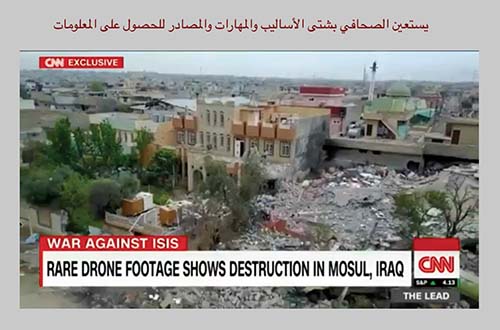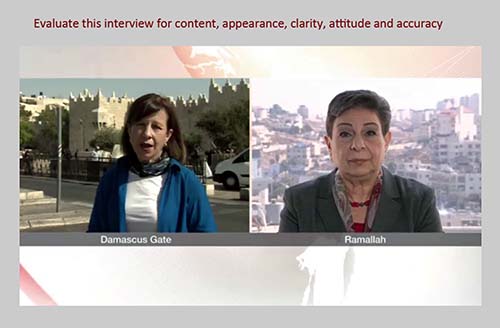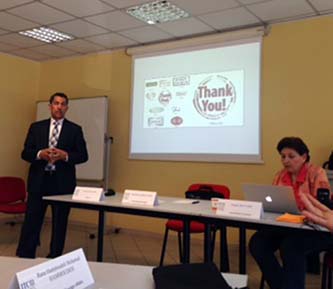Foreign service officials must master the art and science of digital and public diplomacy if they’re to be effective abroad, but equally if they’re on home turf dealing with media, diplomats and foreign visitors.
This is doubly important for Palestinian diplomats who face tremendous odds representing a homeland under occupation in a truncated landmass and whose movements are severely restricted.

Trainers, trainees and administrators at Turin workshop
Constraints notwithstanding, Media Unlimited director Magda Abu-Fadil co-trained a group of 10 Palestinian officials at a weeklong workshop on “Communication Skills & Media Relations for Diplomacy” in Turin, Italy in August 2017.
The event, organized by the International Training Center of the International Labor Organization (ITC-ILO), with funding from the Italian Consulate General in Jerusalem, was the second in which she participated as a journalist/trainer along with Abdulhamid Abdeljaber, a journalist and faculty member at Rutgers University.

Journalists use multiple means and sources to obtain information
Abu-Fadil and Abdeljaber showed the participants how to think like journalists and understand what media look for in news.
This included familiarizing them with converged, digital media priorities, hardware, software and applications used by journalists, skills needed to produce and publish content, cautionary notes on fake news and misleading information, sourcing, and news value.
They put the diplomats through two sets of separate rigorous on-camera interviews.

Interview skills
Other sessions focused on organizing news conferences, briefings and news event planning.
One of the most animated sessions was a news conference simulation with feedback from the trainers-cum-journalists and participants.

White House news conference simulation with Ghada Arafat, Abdulhamid Abdeljaber and Hanan Jarrar
Abu-Fadil also trained the diplomats in the art of writing news releases. The workshop was conducted in Arabic and English.



